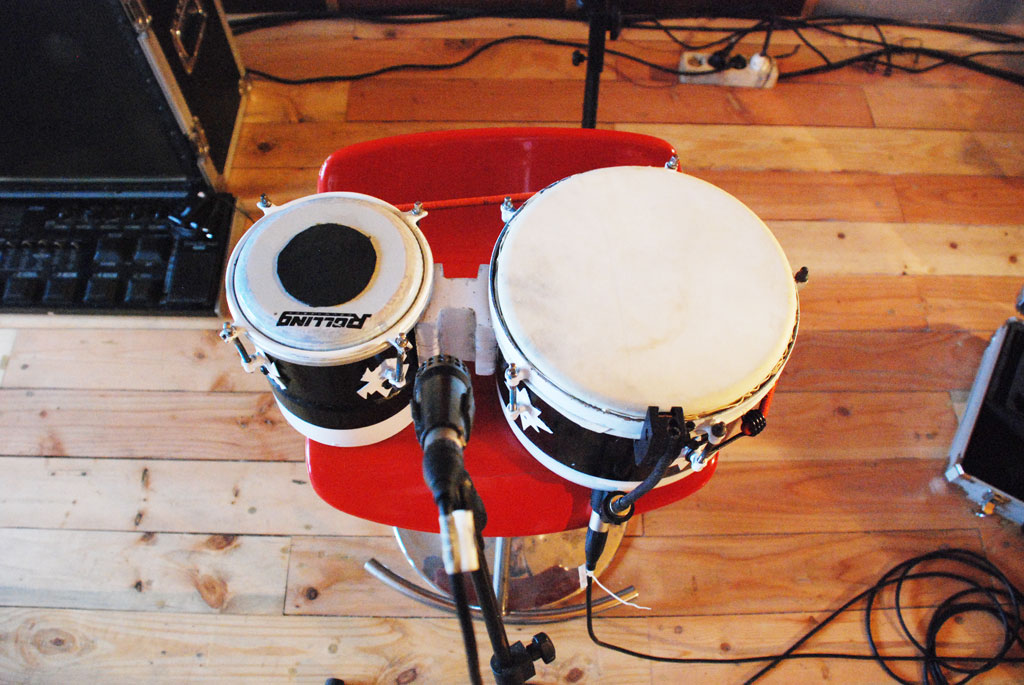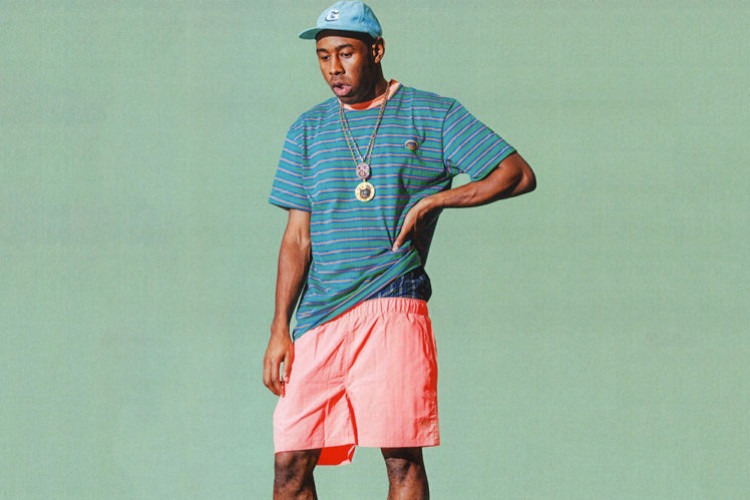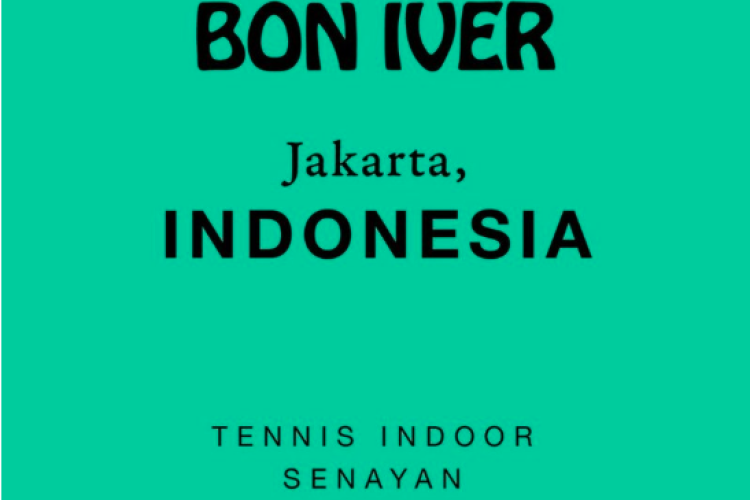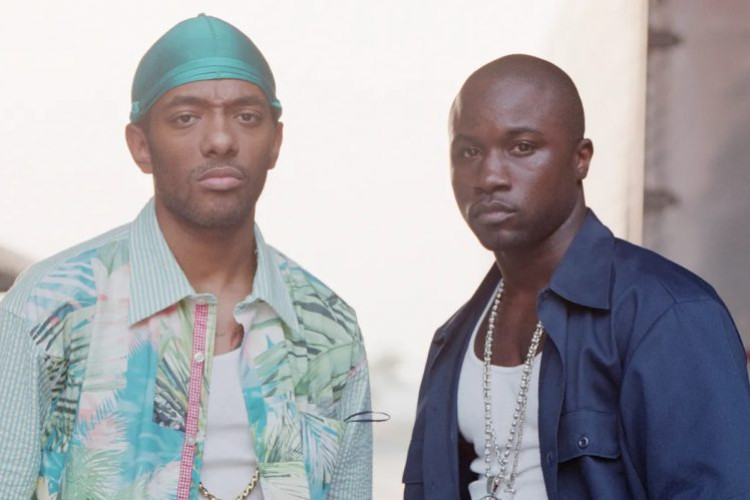Pick Your Poison with OM PMR
Mariati Galatio (M) talks to Orkes Moral Pengantar Minum Racun (P)
by Ken Jenie











M
Could you tell us briefly the history of Pengantar Minum Racun (PMR)?
P
In short, we were close friends who hung out regularly. We used to sit around and make songs together for fun. A Prambors Radio show announcer, Mr. Mulindra, enjoyed our little jams and asked us to perform on a program they had called “Warung Kopi” (Warkop). The program was looking for a home-band to fill part of its slot, and we were invited to be that band.
They took interest in us because we were unique. We weren’t quite pop, weren’t quite dangdut, jazz, rock – we were in a creative spot somewhere in between all genres. The music was definitely Indonesian, but they couldn’t quite pinpoint what we were playing – that made us special.
M
What music was popular when you first started?
P
People were into pop, but for the most part western music was very popular and influenced the Indonesian music scene – Stevie Wonder, Rod Stewart, etc. We entered the industry with music that we thought was very Indonesian, and thank God, the listeners responded.
We were lucky to be associated with Warkop, which was very popular at the time – they helped us get our footing and we were able to do this for over a decade.
M
When was this?
P
This was 1979 – until now we [the original members] are still together.
M
Has there been any line up changes since 1979?
P
No, were still together after all of this time. Oh, but there has been some changes.
M
What would that be?
P
We’re missing our teeth now. (laughs) We’re physically older, but we don’t feel old . (laughs)
M
You have experienced decades of Indonesian music and culture. Could you tell us about your observations of the changes that have happened?
P
We have always followed music – what music was like back then and what music is like right now. An observation we see is on an individual level – that is, the skill level now is amazing. When we started playing music, there might only be one person in town that had a guitar, nowadays, everybody can play the guitar. Skill-wise, Indonesian musicians are top notch – they now have an abundant means to learn their instruments. What still rare are musicians with the charisma to win the hearts of people in Indonesia – we need more musical pioneers.
What made us special was the music that we made. Humorous music did not really exist, humorous lyrics did, and what we performed was a combination of the two – we are pioneers of this creative music. We never thought what we were playing would stand the test of time, but it did.
M
You first album was actually a Christmas album, could you tell us the story about how this happened?
P
By winning an LHI (Lembaga Humor Indonesia – Indonesian Humor Institution) comedy music contest we were asked to make a Christmas compilation album by Mr. Arwah Setiawan, the head of the LHI. He entrusted us to do a PMR take on the music, so we changed the arrangements while keeping the lyrics intact. Since we are all Muslims, we sang them in a Qasidah style and that’s how we made our first album.
The album caused a bit of a problem. Religious institutions were saying “why is this music Islam?” – we responded by asking “is music Islam?”
Music does not have a religion. Lyrics and poems can be religious, but music is universal – it doesn’t side with Islam, Christianity, nor other religions. We didn’t have any religious agenda when we made the album either; we were simply channeling our creativity.
Unfortunately, none of us have a copy of that album.
M
Would you rerecord the album?
P
We don’t know about that, we don’t want to make any more problems. (laughs)
M
Why not, though? Perhaps now that the times have changed, people will respond differently.
P
(laughs) If the people want the album, we are okay with rerecording it – and if the money is good too. (laughs)
M
When you first performed you were categorized as dangdut. What are your observations on the evolution of dangdut?
P
In our opinion, dangdut isn’t like many of the trends that come and go like ska or koplo – it has and continues to exist in a stable manner.
As for PMR, we don’t consider ourselves as dangdut musicians, we are an authentic Indonesian band. We simultaneously play everything from pop, dangdut, keroncong, rock, jazz to country – that is our musical color. We make tongkrongan [hang out] music. When friends get together, they just play stuff that is fun – that is the kind of music we play.
M
So what is PMR’s creative process like?
P
Our commonalities when jamming are only the chords, as in if he plays a G Minor I play a G Minor. We don’t have a formula. We first ask the original band’s permission to cover their song, then PMR gets together and we bounce ideas off each other, and finally we get in the studio to create an arrangement.
M
You will cover a bunch of newer bands in your [upcoming] 15th album, right?
P
Yes, we are remaking songs by Seringai, Efek Rumah Kaca, The Upstairs, Naif, and more.
M
You experienced a bit of controversy involving the then-Minister of Information, Harmoko. Could you tell us about it?
P
PMR had become a phenomenon, and perhaps some communities felt that what we sang weren’t educational.
M
Was there a particular song?
P
Yes, “Judul-Judulan”. There was never an official statement; Minister Harmoko simply critiqued the song as being not educational. The situation snowballed and we were ordered to stop selling the album, which was quite impossible because by then 450,000 cassettes were already in the market.
M
What was the theme of “Judul-Judulan”?
P
It was simply a joke song. “main rumah-rumahan yuk” [let’s play house], “main sekolah-sekolahan yuk” [let’s play school] – kids stuff.
M
So what made it a controversial song?
P
There was only one verse that struck as risque – “Kawin-Kawinan” [play marriage, sometimes associated with sex]. People were perhaps concerned with the phrase’s connotation so they critiqued us.
M
As this is a matter of censorship, would you say that censorship has changed from then and now?
P
We have travelled to America where you are free and accepted to say the most vulgar of things.
Here’s an example – “Baru saja di kenalin, belum di apa-apain, beritanya sudah di gembar-gemborin – anak orang di buntingin” [We were just introduced, we haven’t done anything, but people are already making a fuss – this girl has been impregnated] – that is already too vulgar for Indonesian. Meanwhile in the US you can say the F-word quite freely.
We understand the boundaries since we are of the eastern culture and although we want to push the envelope, we try to keep our music tasteful according to our values.
M
Would you say that in Indonesia, you are now more free to express your ideas?
P
It is a little bit freer, but we have our own personal boundaries. We try not to go over the top – we do feel a responsibility towards our audience. But then again, it’s usually the response that decide whether or not the music is appropriate or not. When we make songs, we are simply concerned about expressing our creativity. After the song is released, that is when the public criticism begins – and it’s their right to express their opinion. Remember, though, that when it comes to making art, pour your heart into it – it’s creativity, and you can’t castrate your creativity.
M
Being friends and in a band together for over 3 decades, how are you able to stay together for so long?
P
The key to our longevity is that none us think of themselves as being the most unique, bands break up because of their ego. No one is in the band has ‘most’ labels.
[Harri “Muke Kapur”] Actually, I am the most unique. (laughs)
M
(Laughs) I thought nobody felt he was the most unique.
P
[Harri “Muke Kapur”] (laughs), not unique in that ego sense, just unique. I could never have dreamed that I would be in PMR, I was just a vegetable seller that made music with friends, and had a positive outcome.
M
And now you are all musicians.
P
No, we still can’t say we are musicians – there are still a lot to learn before we can finally call ourselves musicians.
M
An interesting note, all the members in PMR have nicknames. Could you tell us how you got them?
P
We got our nicknames from the late Mr. Kasino of Warkop. We were about to perform on TVRI and back then our band didn’t have a name yet. Mr. Indro [Warkop] wanted to name us “Orkes Kurang Gizi” [the Malnutritioned Orchestra] because we were all very skinny. (laughs) The late Mr. Kasino, didn’t think it was quite right, and instead dubbed us “Pengantar Minum Racun” [Music to drink poison to]. Back then there was this radio program called “Musik Pelepas Lelah” [Music to Unwind to], and PMR was a play on the program’s name.
Well anyway, we were about to perform on TVRI’s Pelangi-show, and we were individually baptized by the late Mr. Kasino – we were since then Yuri Mahippal on the Mandolin, Harri Muke Kapoor on the mini drums, Jhonny Madu Mati Kutu on the vocals, Imma Maranaan on the bass, Boedi Padukone on the guitar, and Ajie Cetti Bahadur Syah on percussions.
M
So PMR was close to Warkop, yes?
P
Very close, yes. We were Warkop’s home band. They took us around Indonesia before PMR itself became well known.
M
What did that entail?
P
While they were doing their stand up comedy, we accentuated their performances. In their one-hour program, we had a time slot where we would do a comedy sing along. Their routine was comedy and music, and we were the music part.
M
PMR has recently gotten a buzz again. What do you think caused this?
P
During our 16-year vacuum we yearned to get back together and perform. We miss making music together. Recently [2013] we were asked to perform in Café Borneo in Kemang, and that was the catalyst for the gang to reunite.
What surprised us during that performance was that the youth were the ones listening to PMR, not the older generation. When we performed in Borneo they sang along to all of our songs – they knew all the lyrics! That humbled us.
M
How, do you think, did these kids become fans of PMR?
P
I believe the upper-middle class youth are able to know us because of the internet. Our music is on the web, the youth found them, and listened to them for years. When we finally performed, they went crazy – at times it was difficult to play our instruments because there were so many of them on the stage.
M
Perhaps also because you come from the Warkop generation, there is a nostalgia in your music that the youth would like to experience.
P
Absolutely. That and they perhaps are looking for music that is less serious – they are looking for music that is fun.
M
Who are your influences?
P
Our idols vary – some of us are fans of western music, some of us like Indian music, Lenong [Betawi traditional theater], the Beatles, Koes Plus – that is why our music is unique.
M
That ends our interview, is there anything in particular you would like to convey to our audience?
P
[Yuri Mahippal] For music listeners in Indonesia, please give your support to musicians in Indonesia, regardless of their scene or genre.
[Ajie Cetti Bahadur Syah] I hope you don’t get bored of listening to PMR and watching our performances.
[Harri Muke Kapoor] I hope PMRs music will touch the hearts of PMR listeners.
[Johnny Madu Mati] Create what doesn’t exist, because what doesn’t exist exists.
[Imma Maranaan] For the people in Indonesia and abroad, enjoy our music. In English “don’t forget me!” (laughs)
[Boedi Padukone] The future is now for PMR!
[Rustam – manager] Can the management leave a message too?
M
Go for it.
P
[Rustam – manager] When watching PMR, bring an extra set of underwear so you can change it when you pee in your pants from laughter. (laughs)











